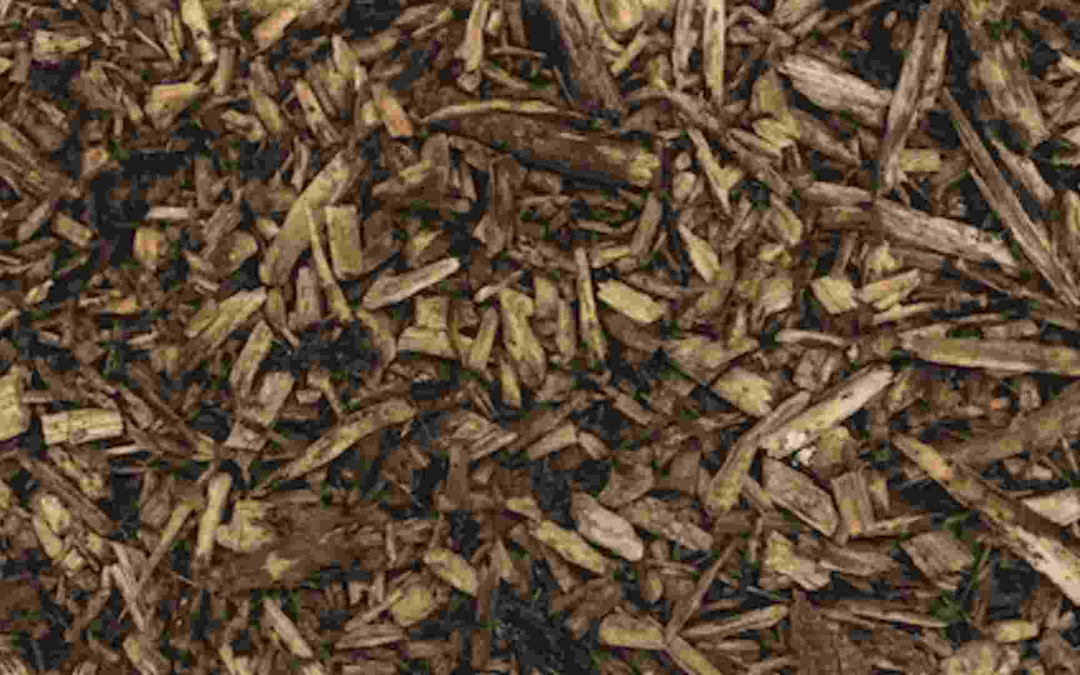One crucial element often overlooked is mulch when maintaining a lush and vibrant garden or creating an inviting landscape. Mulch, with its myriad benefits, is the unsung hero of gardening and landscaping.
Whether you’re a seasoned gardener or a novice enthusiast, understanding what is mulch used for and how it can enhance your outdoor spaces is vital to a flourishing and sustainable environment.
In its simplest form, mulch is a protective layer of material applied to the soil’s surface. It is a versatile ally, offering numerous advantages beyond mere aesthetics. It acts as a shield, safeguarding your plants and dirt from the harsh elements of nature. From regulating the temperature of the soil and retaining moisture to suppressing weeds and improving soil fertility, the significance of organic mulch cannot be overstated.
By exploring the different types (organic mulches & inorganic mulches), application techniques, and maintenance practices, you will unlock the full potential of mulch and discover a world of possibilities to transform your outdoor spaces into vibrant, thriving havens.
Definition of Mulch
Mulch is a protective material spread over the soil surface in gardens and landscapes that can derive from organic or inorganic materials, such as synthetic mulch. It serves multiple purposes, such as conserving moisture in the soil around plant roots, regulating soil temperature by acting as a fresh layer, suppressing weeds, and improving soil health.
By understanding the different types of mulch available, you can choose the most suitable option for your specific gardening needs. They can be classified into two main categories: organic and inorganic mulches.
Organic Mulches vs. Inorganic Mulches: The Differences
Organic mulch derives from wood chips, straw, compost, or shredded leaves. It decomposes over time, enriching the soil with nutrients and organic matter. It helps retain moisture by reducing evaporation, keeping the soil temperatures low, and preventing dryness.
One more thing that can rank in the list of mulch benefits is that as they break down, organic mulches improve soil structure and fertility, improving plant health.
In contrast, inorganic mulches contain non-natural materials, including rubber mulch, rocks, gravel, and landscape fabric. It does not decompose and has a longer lifespan than organic mulch, and is often preferred for its durability and low-maintenance properties.
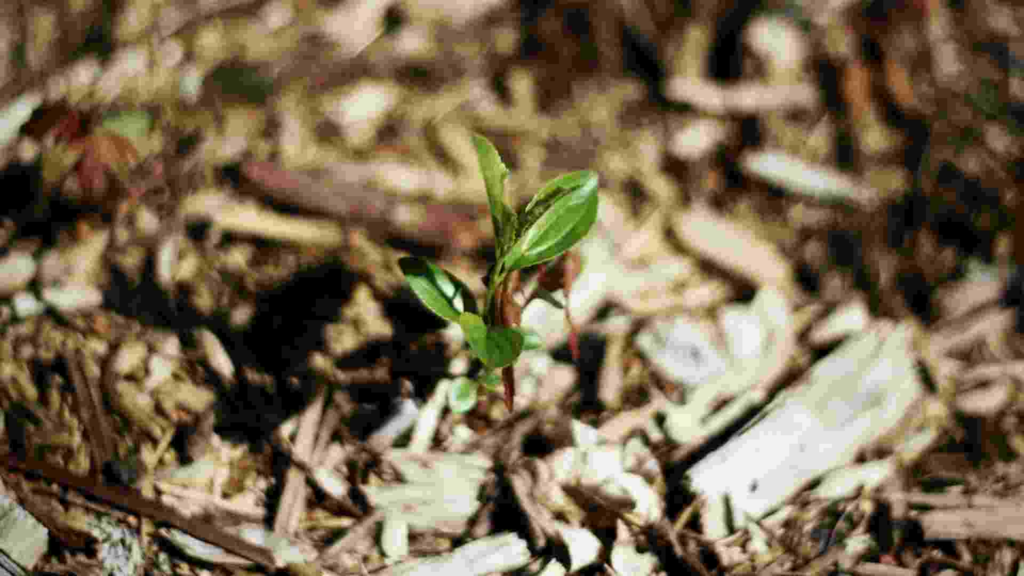
Still wondering what is mulch used for?
While organic mulch is beneficial for enhancing soil quality and fertility over time, making it ideal for long-term plantings. It is commonly used in vegetable gardens and flower beds. On the other hand, inorganic mulch is preferred in areas where long-lasting coverage is desired, such as around trees or in high-traffic areas. It offers a clean and polished look to landscapes and is often used in commercial settings or areas with decorative features.
Understanding the difference between organic and inorganic mulch lets you make informed decisions when selecting the most suitable option for your garden or landscape. Consider your needs, desired aesthetics, and long-term goals to determine the best mulch type to optimize your outdoor spaces’ health and beauty.
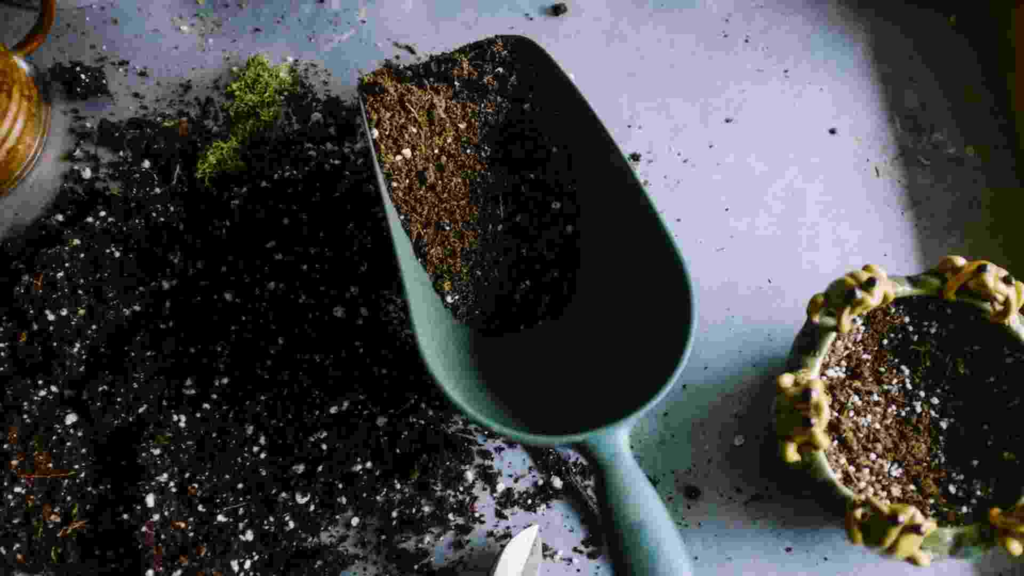
Benefits of Organic Mulch: Lowering Soil Temperature and More
Introducing mulch into your gardening and landscaping routine offers a multitude of benefits. From conserving moisture to suppressing weeds, mulch is a versatile tool that enhances the health and beauty of your outdoor spaces. Let’s explore the advantages of using mulch:
-
Moisture Retention and Soil Erosion Prevention:
Mulch creates a protective layer that reduces evaporation, helping retain soil moisture. It acts as a shield, preventing soil erosion caused by heavy rainfall or winds.
-
Regulation of Soil Temperature:
Mulch acts as an insulating layer, moderating soil temperature fluctuations. It keeps the soil cool during hot summer and provides insulation against freezing temperatures in colder seasons.
-
Weed Suppression:
Mulch serves as a natural way to suppress weeds from growing.
It works by creating a physical barrier that blocks sunlight from reaching weed seeds, inhibiting their germination, which reduces the need for frequent weeding and minimizes competition between weeds and desired plants.
-
Improvement of Soil Fertility and Health:
Organic mulch enriches the soil with nutrients and organic matter. They release nitrogen, phosphorus, and potassium gradually, providing a steady supply of nourishment for plants. Organic mulch promotes beneficial soil organisms, fostering a healthy and balanced ecosystem.
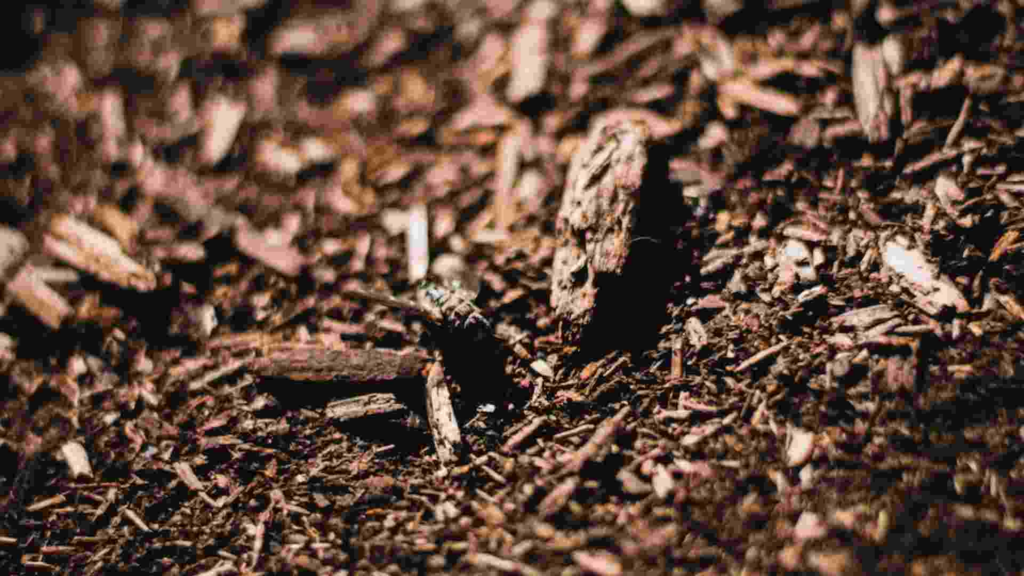
How to Apply and Maintain Mulch
To ensure the effectiveness and longevity of mulch in your garden or landscape, it is crucial to follow proper application and maintenance practices. By taking the time to prepare the area, using correct mulching techniques, and implementing regular maintenance, you can optimize the benefits of mulch while avoiding potential issues.
Preparing the Area Before Mulching:
Before applying mulch, it is essential to prepare the area properly. Start by removing any existing weeds, debris, or grass that may be present. This step ensures a clean environment for mulch installation and minimizes competition for nutrients. Additionally, ensure the soil is adequately watered, allowing for proper moisture absorption. Moist soil provides a conducive environment for the mulch to retain moisture effectively and promote healthy plant growth. By preparing the area before mulching, you create an optimal foundation for maximizing the benefits of mulch, such as weed suppression and moisture retention.
Correct Mulching Techniques:
When applying mulch, it is crucial to follow the correct techniques to ensure its effectiveness. Maintain a thickness of 2-4 inches of mulch to provide sufficient coverage and insulation for the soil. This thickness helps prevent weed growth, conserve moisture, and regulate soil temperature. However, it is essential to leave a small space around the base of plants, commonly called the “mulch-free zone.” This area helps prevent excessive moisture retention around the plant stems, which can lead to rot or disease. Use a rake or your hands to gently spread the mulch, ensuring an even layer without clumps or mounds. This even distribution encourages uniform moisture retention and enhances your garden’s or landscape’s aesthetic appeal.
Maintenance Tips for Mulch:
Regular inspection and replenishment are essential to maintain the benefits of mulch over time.
Organic mulches gradually decompose, and replenishing the layer helps maintain the desired thickness for optimal weed suppression and moisture retention. As you observe the mulch, be vigilant about weed growth and promptly remove any emerging weeds. This prevents them from competing with your plants for nutrients and resources.
Additionally, keep an eye on the moisture levels in the soil. Adjust your watering practices accordingly, considering the moisture retention properties of the mulch. This ensures a balanced moisture level for healthy plant growth and prevents over or under-watering.
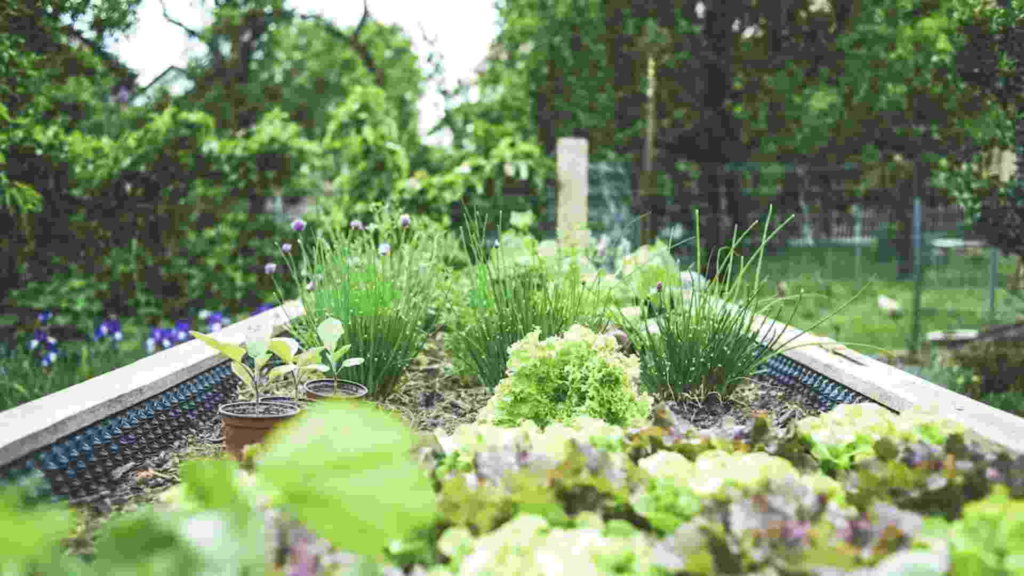
Is Over-Mulching Possible? Potential Issues to Watch Out For
While mulch offers numerous advantages, there are potential issues to be aware of.
It all comes down to knowing how much mulch is needed and what to look for when using organic mulch.
Too much mulch can lead to moisture retention, air circulation problems, and the development of fungal diseases. To avoid this, regularly monitor its thickness and adjust as necessary.
Additionally, if you apply mulch from fresh wood, be cautious, as it may temporarily deplete soil nitrogen levels during decomposition.
To mitigate this issue, consider composting, adding some old mulch, or aging wood mulch before applying it.
By adhering to proper application techniques and implementing regular maintenance, you ensure that mulch remains an asset rather than a hindrance in your garden or landscape.
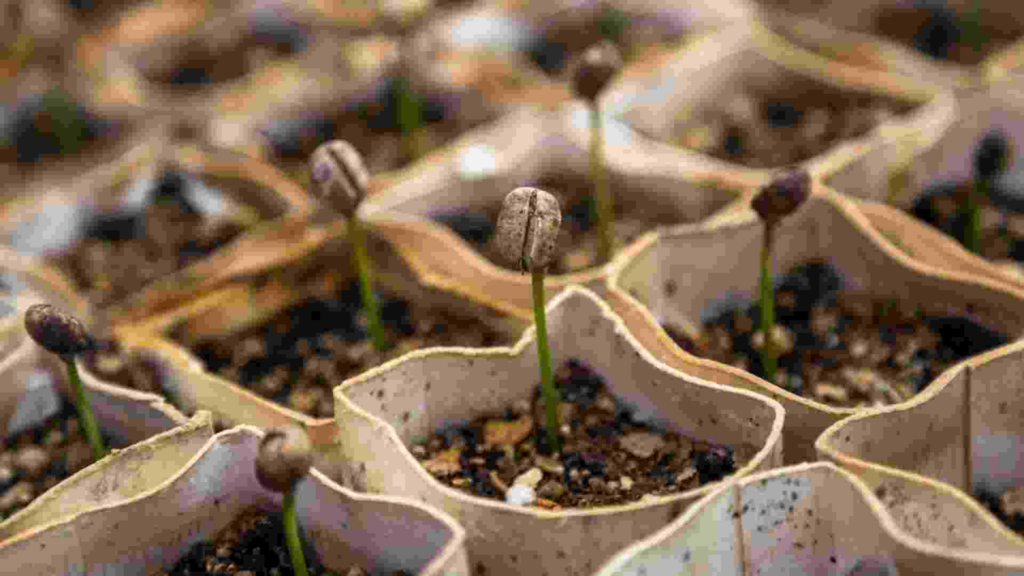
Creative Uses of Mulch
When the question “what is mulch used for?” arises, its benefits can be listed out but there is much more than functional uses to it. Mulch isn’t limited to its traditional applications in gardening and landscaping. Its versatility allows for creative and unconventional uses to enhance outdoor spaces’ functionality and aesthetic appeal. Let’s explore some unique ways to incorporate mulch:
Pathways:
Mulch can be used to create charming pathways in your garden or backyard. Its natural texture and color provide a rustic and organic look, blending harmoniously with the surrounding vegetation. Mulch pathways offer a softer surface than traditional paved paths and can be easily adjusted or rearranged.
Decorative Areas:
Mulch can be strategically placed to define and accentuate specific areas in your landscape. Apply mulch around trees, shrubs, or flower beds to create distinct borders and separate different garden elements visually. The contrasting colors and textures of mulch can add depth and visual interest to your outdoor spaces.
Aesthetic Appeal:
One of the key advantages of using mulch in landscaping is its ability to enhance the overall aesthetic appeal. Whether you opt for organic or inorganic mulch, it can give your garden a polished and well-maintained appearance. Mulch provides a tidy look by covering bare soil, hiding imperfections, and unifying the visual elements of your landscape design.
By thinking outside the box and exploring creative applications, you can leverage the aesthetic qualities of mulch to transform your outdoor areas. Whether you incorporate it in pathways, create decorative regions, or use it as a unifying element, mulch adds a touch of natural beauty and charm to your landscaping endeavors.
Conclusion
In conclusion, the benefits of using organic mulch in gardening and landscaping are undeniable. From moisture retention and weed suppression to temperature regulation and soil improvement, mulch plays a vital role in enhancing the health and resilience of your outdoor spaces.
By incorporating mulch into your gardening routine, you not only create a thriving environment for your plants but also save valuable time and effort in maintenance. Embrace the advantages of mulch and unlock the full potential of your garden or landscape.

